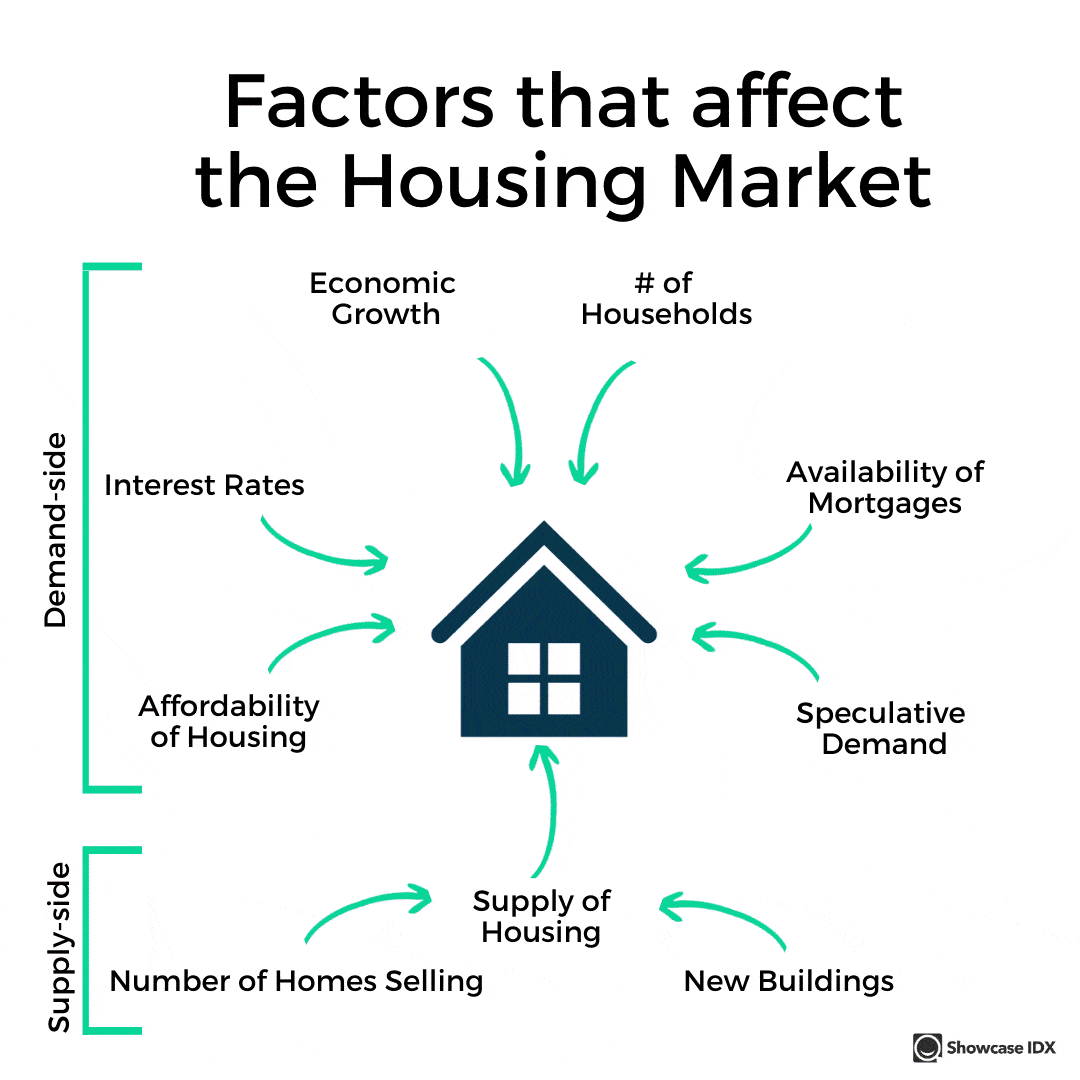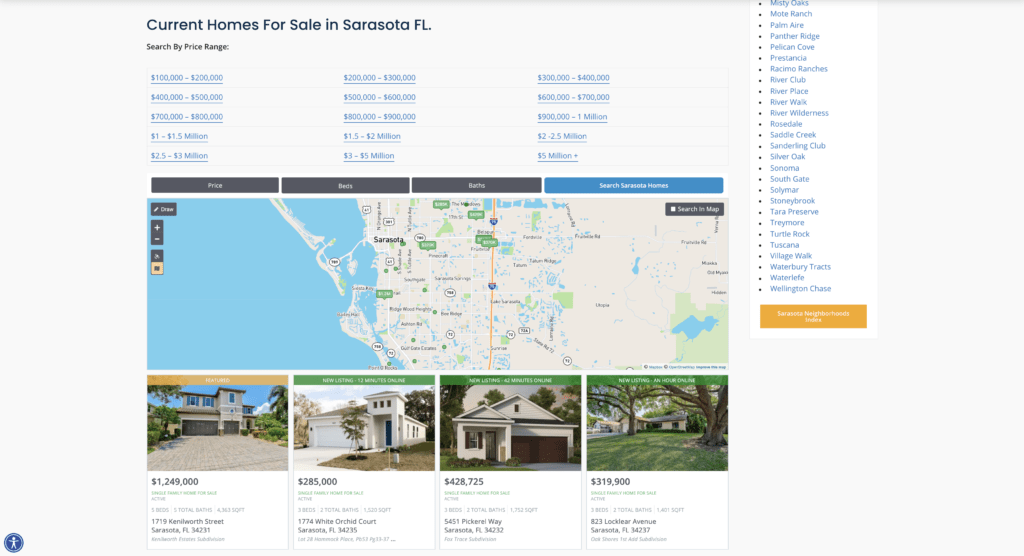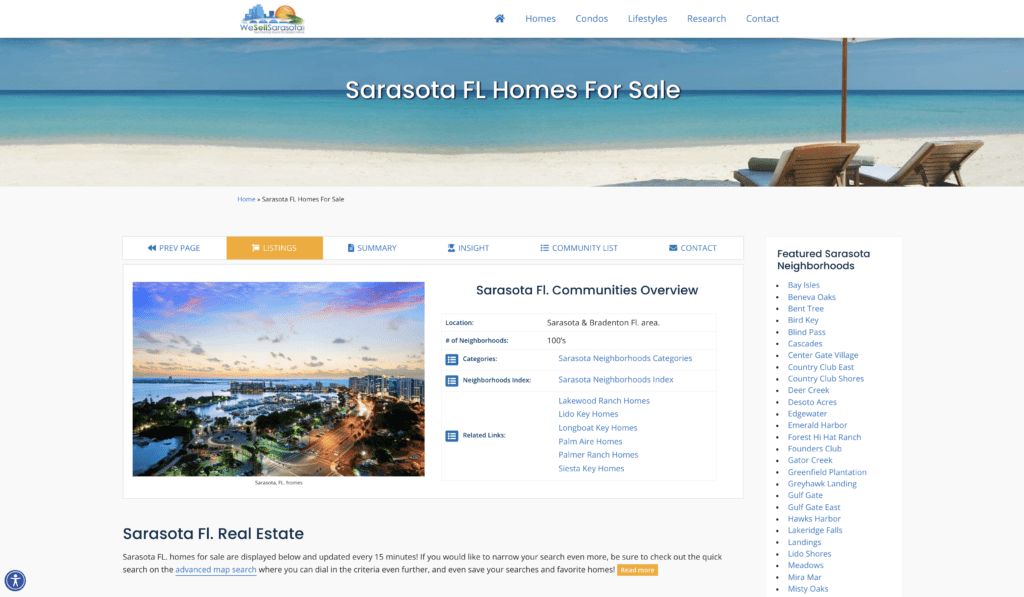Are you a new or established Realtor that’s trying to freshen up your digital real estate marketing efforts with a new or updated website? Do you need a marketing hub that you own to consolidate your client relationships from rented channels like Facebook, Instagram, email, etc.?
This article will answer all those pesky real estate website questions, and you will walk away with a few tangible steps you can take to build or upgrade your real estate website. From IDX integration to a contact info page, we will ensure you have everything you need for your real estate website.
Read on to learn everything you need to know about building and/or improving your real estate website!
Why Do I Need A Real Estate Website?
More and more people are using the Internet to find Realtors, real estate agencies, and property listings. At this point in time, your website and social media ARE your real estate marketing strategy.
According to the National Association of Realtors 2019 Report, 44% of home buyers look online for properties as their first step, and that number has plans on increasing from there. You could be losing out on a large percentage of leads if you don’t have a website or even if your website is out-of-date.
Your real estate website provides a central location for everything current and prospective clients would need to know about your business. Having a website allows for a wider range of leads, opportunities to hone in on your personal brand, and it gives your clients 24/7 access to check out listings and let you know what they need, whether it’s through contact forms or emails.
Where Do I Begin?
If you already have an established real estate website, you can go ahead and check out the website features section below. However, if you are just getting started, here are the basic things you need to start creating a real estate website clients will love.
1. Domain
The first thing you want to do is secure a domain name. It’s ideal if you can lock down a domain with the name of your business, but if that isn’t available, go for a domain name with an SEO keyword that relates to your niche.
Pro-Tip: The closer your domain is to your social media handles, the better. It provides a consistency in your brand and makes it easier for clients or a potential buyer to recognize your brand when they see it.
2. Hosting Site
Now that you have your domain, you’ll need to find a server to host your website on. Luckily, there are several great options for you to choose from when it comes to your hosting site. Each one has multiple plans at varying costs so you can find the best set up for your real estate business.
If you’re not very crafty when it comes to technology, don’t sweat it! Here is a list of our certified partners who can help you build out your custom WordPress website. Look through the list and talk with 2 or 3 of them about building a great real estate website.
3. A Great Real Estate Theme
The final foundation you need for your real estate website is a great theme. You want your website theme to reflect your brand and make it as easy as possible for visitors to navigate through your website. Your website theme should be able to display your information, listings, and property images in a way that is appealing to the eye and functional to navigate through.
Check out this article on the best themes for your wordpress website to get some ideas on what real estate theme speaks to you.
What Features Should My Real Estate Website Have?
Once you have your website’s foundation built, you’ve got to make it a site that your clients will love to use. Read below to see the top 7 features that are must-haves for real estate websites.
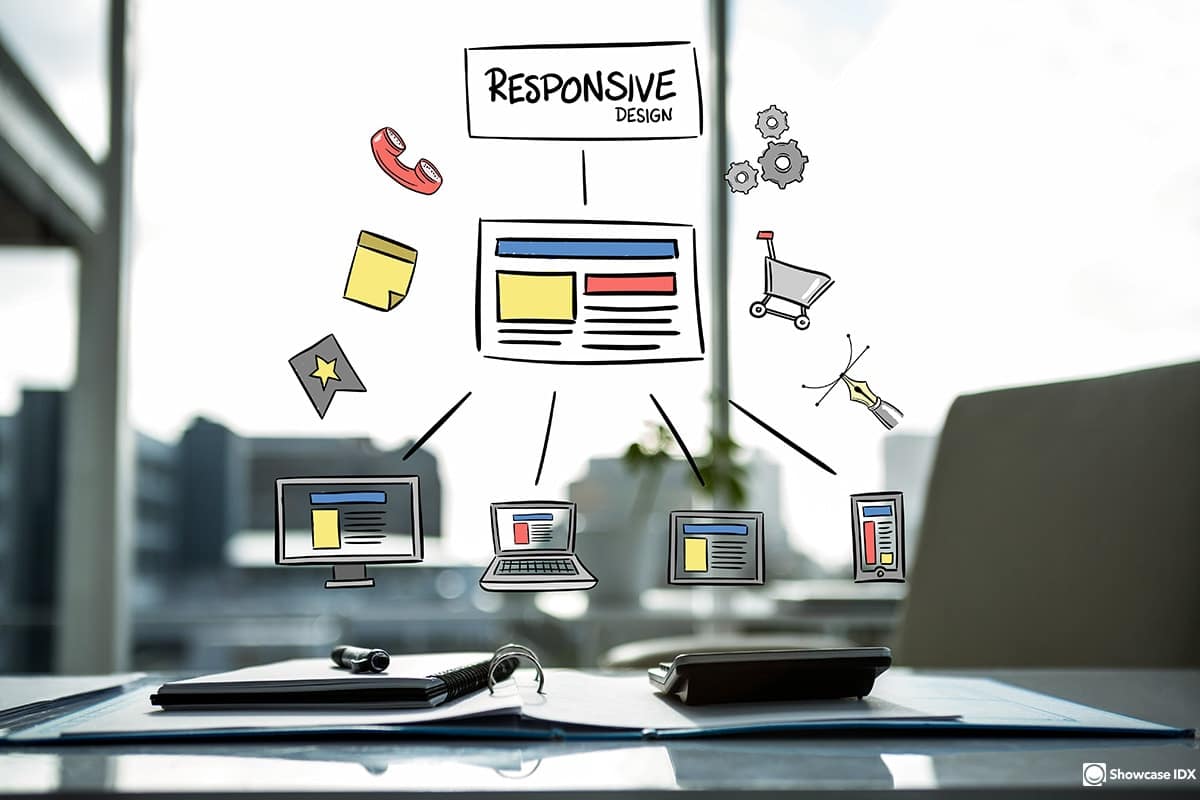
1. Responsive Web Design
Responsive web design means that your real estate site works great on devices of all kinds, from large computer monitors to small smartphones. If your website doesn’t have a responsive web design, the home buyer will struggle to use it on different screens.
For instance, smartphone users will need to pinch their screen to zoom in and out to click on buttons or read certain portions of your website. They may need to scroll horizontally and will miss elements of your website that aren’t visible.
This is a frustrating experience for any user, and it will result in heightened bounce rates.
Even worse, the Google algorithm and other search engines will recognize the fact that your website isn’t responsive and will be less likely to rank your website high on search engine results pages (SERPs).
Pro Tip: We have a list of real estate WordPress templates that drive incredible results and are responsive. We’ve analyzed 100,000 Realtor websites and found the top performers, then had our team evaluate them for ease of use, technical Search Engine Optimization (SEO), and responsiveness. Ask anyone on our team for the list.
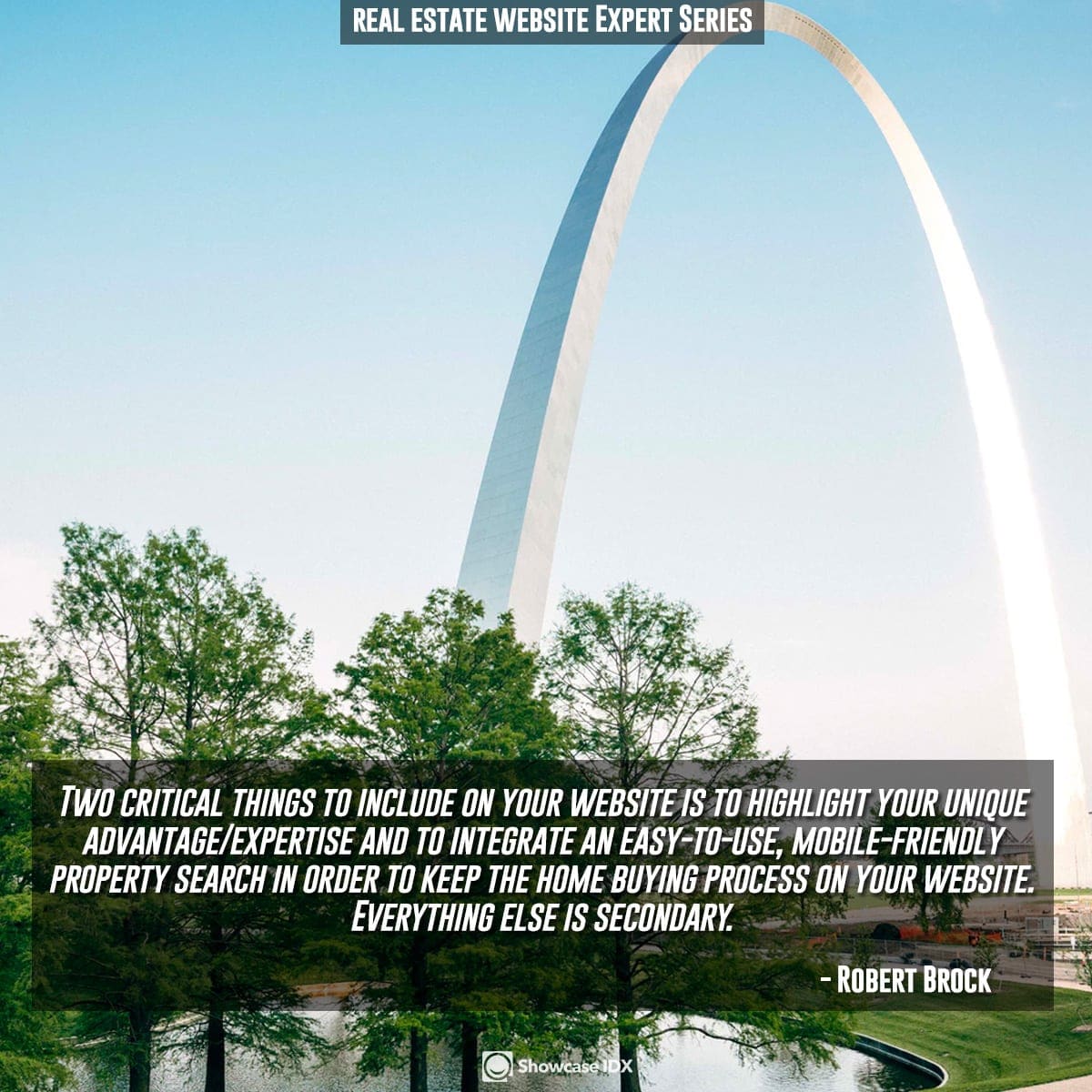
2. Property Listings with IDX Integration
IDX integration is crucial for any real estate website because it allows Realtors to share local property listings from the MLS directly on their websites. Instead of trying to find apartments and homes for sale on Zillow, Redfin, and other large sites, you can become the authority in the area by sending consumers directly to your website.
When your client has to or wants to use Zillow over the search on your website, you know that Zillow is going to give their information (and budget, based on their search information) to a competitive agent, mortgage broker, etc. But this does NOT have to be the case, and we have thousands of examples of Showcasers growing their businesses year-over-year by simply retaining their clients and new people they meet.
IDX integration can be used in conjunction with capturing leads by asking for email confirmations. You can then send emails to interested buyers who have engaged with your website.
Furthermore, IDX integration means that each listing can have its own page on your website. Those pages are indexed by Google bots and are more likely to be shown in SERPs. While individual listing pages may not rank on Google, they support your overall search engine results and help your hot sheets rank.
Pro Tip: Follow this best practices guide on how to use our Friends and Family Search to 3x (or more) your leads. It shows how to highlight this proprietary feature and delight your clients by making something they’re already doing (sharing leads via text and email) easier and more collaborative on your website.
3. Social Media Integration
Becoming a successful Realtor is all about staying at the top of mind in your social network as well as acquiring new leads. The most affordable and easiest way to do this is to keep your social media channels updated and engaging. If you’re active on your social media channels, this can be an easy way to add images, videos, and other content to your website.
This can also work in reverse. As you add new content and listings on your website, be sure to add the ability for people to leave comments and share on their social media pages. When people see that there’s an easy way to share with their friends and family, they’re far more likely to do it.
Pro Tip: Effective social media connects with the 80% – 90% of your clients that are not actively buying. Get 300+ pieces of essential social media content (free) to do just this, plus a free course on how to batch schedule them to save you time.
4. Build Credibility
You’ll probably have noticed that there are hundreds of thousands of Realtors in your local area, and you need a way to stand out from the bunch. You can do this directly on your website by building credibility through testimonials and informative content.
Buyer testimonials are important because they give social proof that you’re a great Realtor to work with. Choose a few of your best reviews and feedback from clients and post them on the homepage or a dedicated testimonial page, like this one. These testimonials will have an even greater weight if you include a small portrait of the person as well as their first name and last initial.
Lastly, you can build credibility and increase trust by including videos or photos of yourself. Keep the videos short–three to five minutes is best–and speak to the camera as if you’re introducing yourself to a new client. Photos can be lifestyle portraits of yourself in action, such as speaking to a new client or working on paperwork at your desk.
Pro Tip: You can create these videos yourself with simply your iPhone or Android phone. There are free applications that can help you clean up your video, on your phone or computer, but they often are not needed. Remember that you can always redo the video 2 – 5 times and pick the best one to use.
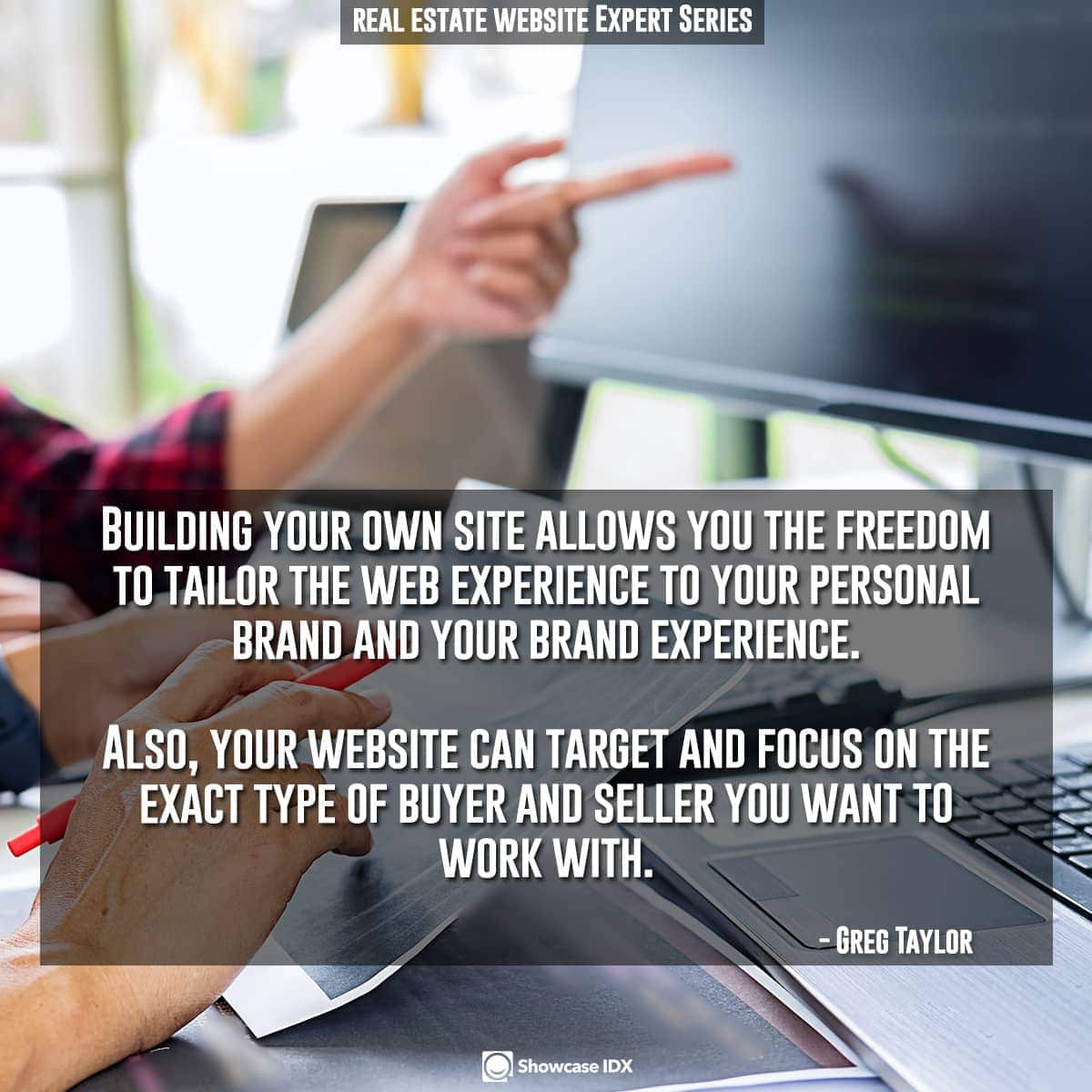
5. Easy Site Navigation
Along with responsive web design, you need to have a clear user interface that guides visitors towards where they want to go. For instance, if you know that many of your visitors are home buyers, you’ll want to include a link to your “home buying” page that’s clearly on the homepage.
If visitors are selling a house, including a “home selling” link on the homepage makes it clear what they need to click on next.
Websites without clear designs look chaotic, confusing, and unprofessional. Instead of encouraging visitors to explore more, they’ll simply click the back button and find a different website that’s easier to use.
Pro Tip: If you’re running Pay-Per-Click (PPC) ads, you can have a different hot sheet for each area that focuses on the 1) buyer 2) seller. You need to highlight different information, and perhaps include IDX listings, on each.
6. A Contact Me/Agent Bio Section
When someone comes to your website, it can be assumed that they want to know more about you. The best way to show your personality and what you uniquely bring to the table as a real estate agent is through your real estate bio.
Your bio provides a way to share your story as a real estate professional, establish your credibility, and lock down leads. You can find some great tips and tricks for your real estate agent bio in this article.
Your agent bio can either be on your “Contact Info” page, or it can be a separate page entirely. Regardless, we highly recommend having contact info on your bio page, whether that’s an email, phone number, or social media handle.
7. Calls to Action
Calls to action are direct, clear requests for visitors to take action on each page of your website. For instance, if a web visitor is on your landing page and you want them to get to know you more, then you may want to include a call to action button that says, “Click Here to Get to Know Me.”
Each page of your website should have a distinct purpose that helps funnel visitors and eventually causes them to convert into clients. This can be as simple as including a “Contact Me Today” link beneath each blog post.
Websites with clear calls to action help keep viewers engaged and on-track. They’ll always know what their next step is!
Pro Tip: Want to know the highest performing registration locks and CTAs from our most successful clients? Here is a free guide with everything you need to know on registration locks, soft versus hard locks, premium content locks, and more.
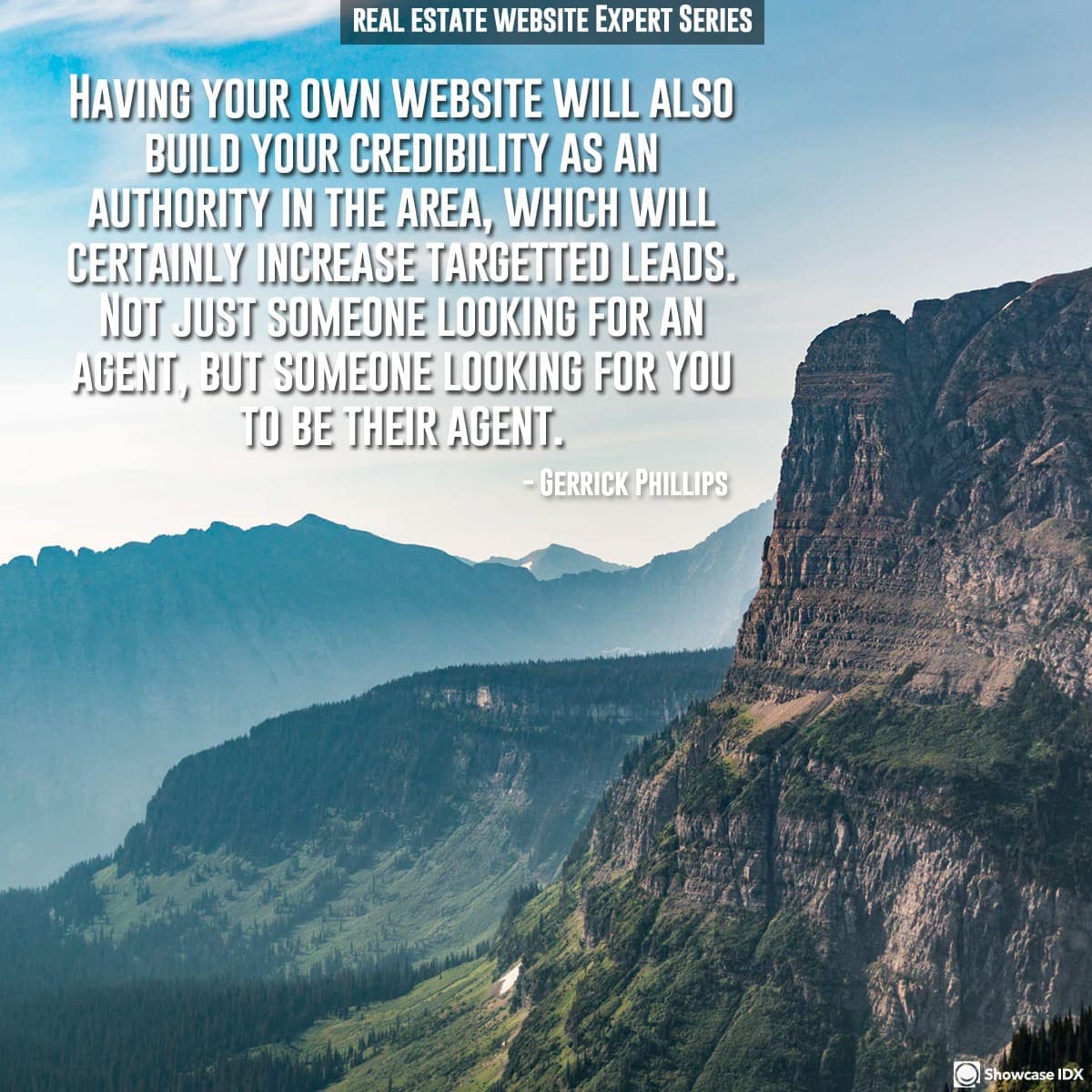
An Example of a Real Estate Website We Love
We Sell Sarasota
We Sell Sarasota has all the features of a great real estate website. Their IDX integration allows visitors to search through homes in the area, without sending them to a completely different site. The site is easy to navigate, and there’s a panel at the bottom of the page with popular community pages for easier access. Not to mention, there is contact info everywhere you turn – an easy way for potential clients to make that call or email with no hesitation.
You can gain some more inspiration with a few more examples of effective real estate websites here.
Take Your Real Estate Marketing Up a Notch by Improving Your Website!
Great real estate websites have a clear purpose. Your website isn’t just about having an online presence. You want that website to do the work for you by enticing leads, collecting their emails, and eventually converting them into a paying client.
Responsive web design helps make websites faster and easier to use for customers, whether they’re on a desktop computer, tablet, or smartphone. Combined with IDX integration, leads will be able to utilize your website to find nearby properties and can input their email addresses if they want to get in contact with you.
Ready to make your WordPress website start working for you through IDX integration?
Sign up today for our fully-featured, 10-day free trial!
